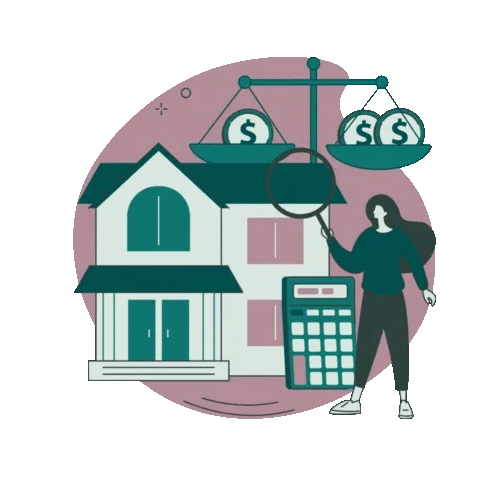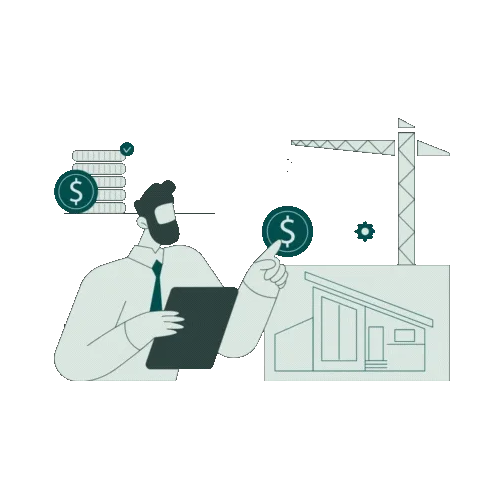The Ultimate Mortgage Renewal Process Guide: Everything Canadians Need to Know
Imagine finishing your mortgage term—maybe 5 years have flown by—and now you get a renewal notice from your lender. Do you just sign on the dotted line, or explore other options? By learning about the Mortgage Renewal Process in Canada, you can save money, find a better rate, and tailor your mortgage to your current lifestyle. In this guide, we’ll break down every step so you can make confident decisions, from checking mortgage rates in Canada to switching lenders if needed.
(Curious how changing your monthly payment or interest rate could affect your budget? Check out our Comprehensive Mortgage Payment Calculator or Compare and Save Calculator for quick estimates!)

On this Page
Introduction: Why Mortgage Renewal Matters
Mortgage renewal is like hitting the reset button on your home loan once its term ends. Typically, Canadian mortgages have terms ranging from 1 to 5 years (sometimes more), and once that period finishes, you can:
- Stay with your current lender at new rates or terms.
- Switch to a new lender for a potentially better deal.
- Renegotiate your mortgage conditions, such as payment frequency, type of interest rate, or other features.
Renewal time is your chance to shop around, negotiate, and ensure your mortgage still meets your needs—especially if your financial situation or goals have changed. This guide will show you how to approach each step, from checking different lenders to the final signature.
(Need more “first-time homebuyer tips”? Explore our 50+ Blog Posts for everything from “affordable mortgages” to “how to handle the Mortgage Stress Test.”)
Section 1 – What Is the Mortgage Renewal Process?
The Basics
When your mortgage term ends, the renewal process begins. Your lender typically sends you a renewal offer about 30 to 120 days before your term is up. This new offer could have:
- A suggested interest rate (fixed or variable).
- A fresh term length (1, 2, 3, 5 years, etc.).
- Updated monthly payment amounts.
Why It’s Important
- Potential Savings: Mortgage rates in Canada might be lower now than when you first signed.
- Opportunity to Adjust: Maybe you want to pay off faster with a shorter term or reduce monthly bills by extending.
- Competition: Other lenders could woo you with lower rates, so it’s wise to compare offers.
(Want to see how a different rate affects your monthly budget? Our Comprehensive Mortgage Payment Calculator can help you crunch the numbers.)
Section 2 – A Step-by-Step Timeline for Renewal
1. Six Months Before Your Term Ends
- Review Current Mortgage: Note your interest rate, monthly payment, and how much principal remains.
- Check Market Rates: Peek at current rates from major banks or credit unions. If rates are lower, you could save.
2. Four Months Before Renewal
- Lender Sends Renewal Notice (Often): Many lenders let you “lock in” a rate up to 120 days before the official renewal date.
- Begin Research: Compare your lender’s offer to other lenders or broker deals.
3. One to Two Months Before Renewal
- Negotiate With Your Current Lender: Use quotes from other lenders as leverage.
- Consider Switching: If another bank or lender offers a better rate or flexible terms, get a mortgage approval to ensure you can qualify for that offer.
4. Renewal Day
- Sign New Mortgage Papers: Whether staying or switching, read the fine print. If you switch, factor in potential costs like legal fees or appraisal fees.
- Finalize Payment Details: Confirm your monthly payment amount, rate type, and next renewal date.
(Check out our Compare and Save Calculator to see if a new lender’s rate truly beats your current one!)
Section 3 – Key Factors to Consider When Renewing
1. Interest Rates
Rates might be higher or lower than before. Are you comfortable locking in a fixed rate, or do you prefer a variable rate that might change with the prime rate? Evaluate your risk tolerance and future plans.
2. Mortgage Term Length
Think about how soon you might move, or if you want to pay down quickly. A shorter term can help you become mortgage-free faster but often comes with higher monthly payments. A longer term might lower monthly bills but keep you in debt longer.
3. Mortgage Features
Some mortgages offer extra perks: prepayment privileges, skip-a-payment options, or portability (moving your mortgage to a new property). Does your renewal offer these features, or do you need them at this stage?
4. Your Financial Goals
Has your situation changed since you first got your mortgage? For example, if you’ve gotten a raise, you might want to make bigger payments or accelerate your term. If your budget is tighter, you might stretch things out for a lower monthly cost.
Section 4 – Negotiating Your Mortgage Renewal
Even if you stay with the same lender, don’t be shy about negotiating better terms. Your lender wants to keep you, so:
- Do Your Homework: Check competitor rates. RBC might offer 2.9% while BMO offers 3.1%.
- Ask for Rate Matching: Politely mention that another lender is offering a lower rate. See if yours will match or beat it.
- Discuss Mortgage Options: Maybe you want more flexible prepayment privileges or a shorter term.
- Be Prepared to Switch: Sometimes, the best way to get a deal is showing you’re willing to walk away.
(Curious how other Canadians handle their renewals? Scan our Blog Posts for success stories and real-life negotiations.)
Section 5 – Switching Lenders at Renewal
Pros and Cons
- Pros: Possibly lower interest rates, better features, or friendlier terms.
- Cons: Might involve new legal fees, appraisal fees, or a credit check. The process can be a little more work.
Eligibility Requirements
- Good Credit & Income: New lenders will check your credit score, income, and debt levels. If something changed negatively since you got your original mortgage, it could affect your approval.
- Home Appraisal: The new lender may want an updated appraisal to confirm the property’s value.
(Worried about extra costs? Use our Comprehensive Mortgage Payment Calculator to see if your monthly savings from a new rate offsets any switching fees.)
Section 6 – Example: Jack’s Mortgage Renewal Story
Jack’s 5-year fixed mortgage at 3.8% is up for renewal. His bank offers 3.4%. But after researching online, Jack finds another lender offering 3.2%. He calls his current lender, mentions the 3.2% offer, and they match it at 3.2%, plus a slight prepayment perk. Jack renews with his old lender, saving hundreds of dollars yearly—no switching fees needed.
Section 7 – Working with a Mortgage Professional
Sometimes, hiring a mortgage broker or advisor can simplify the renewal process. They:
- Compare Rates from multiple lenders.
- Highlight Special Offers or rate discounts you might miss on your own.
- Handle Paperwork for switching, including legal steps if necessary.
Our team at The Genesis Group has helped thousands of Canadians renew with confidence. Whether you want to shorten your term, get a better interest rate, or handle a unique financial situation, we’re here to guide you every step of the way.
Section 8 – FAQs About the Mortgage Renewal Process
Below, we address common questions Canadians ask about renewing their mortgages. For more tips, see the rest of our over 50 Blog Posts.
What is a mortgage renewal in simple terms?
It’s when your mortgage term ends and you either sign a new agreement with the same lender or switch lenders, often changing the rate or term.
How far ahead should I start preparing for renewal?
Typically 4-6 months before your term ends. Some lenders let you lock in a rate up to 120 days in advance.
Will I pay any fees if I stay with my current lender?
Most times, no. Renewing with your current lender is usually free, but switching lenders can involve legal or appraisal fees.
Does renewing my mortgage affect my credit score?
Staying with your lender doesn’t usually trigger a credit check. Switching might, but a single inquiry typically has minimal impact on your score.
How can I use my renewal to pay off my mortgage faster?
You can choose a shorter term, make a lump-sum payment if allowed, or increase your regular payments, depending on your lender’s prepayment rules.
(Need official details from the Canadian government? Check out Canada.ca’s Mortgage Info for general housing guidelines.)
Your Mortgage Renewal Process might feel routine, but it’s a big financial moment. By planning months ahead, comparing rates, and negotiating confidently, you can secure better terms that save you money and align with your goals. Remember:
- Renew Early: Start at least 4 months before your term ends.
- Compare Rates: Check if other lenders offer something more appealing.
- Negotiate: Don’t just sign your lender’s first offer. Politely ask for better rates or features.
- Speak With Experts: Mortgage professionals can simplify the process and find hidden deals.
Ready to renew with confidence? Get personalized support from our team at The Genesis Group. Whether you’re eyeing a lower monthly payment or want to speed up your path to mortgage freedom, we’re here to guide you through every detail. Let’s make your mortgage renewal a smart financial move—not just paperwork to sign!













